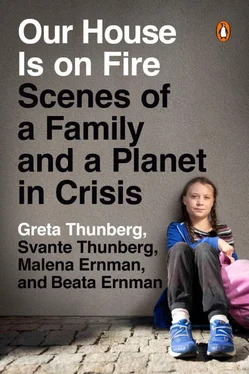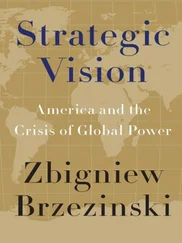Greta Thunberg - Our House Is on Fire - Scenes of a Family and a Planet in Crisis
Здесь есть возможность читать онлайн «Greta Thunberg - Our House Is on Fire - Scenes of a Family and a Planet in Crisis» весь текст электронной книги совершенно бесплатно (целиком полную версию без сокращений). В некоторых случаях можно слушать аудио, скачать через торрент в формате fb2 и присутствует краткое содержание. Город: New York, Год выпуска: 2020, ISBN: 2020, Издательство: Penguin Books, Жанр: Биографии и Мемуары, Публицистика, на английском языке. Описание произведения, (предисловие) а так же отзывы посетителей доступны на портале библиотеки ЛибКат.
- Название:Our House Is on Fire: Scenes of a Family and a Planet in Crisis
- Автор:
- Издательство:Penguin Books
- Жанр:
- Год:2020
- Город:New York
- ISBN:978-0-14313-357-5
- Рейтинг книги:4 / 5. Голосов: 1
-
Избранное:Добавить в избранное
- Отзывы:
-
Ваша оценка:
- 80
- 1
- 2
- 3
- 4
- 5
Our House Is on Fire: Scenes of a Family and a Planet in Crisis: краткое содержание, описание и аннотация
Предлагаем к чтению аннотацию, описание, краткое содержание или предисловие (зависит от того, что написал сам автор книги «Our House Is on Fire: Scenes of a Family and a Planet in Crisis»). Если вы не нашли необходимую информацию о книге — напишите в комментариях, мы постараемся отыскать её.
Our House Is on Fire: Scenes of a Family and a Planet in Crisis — читать онлайн бесплатно полную книгу (весь текст) целиком
Ниже представлен текст книги, разбитый по страницам. Система сохранения места последней прочитанной страницы, позволяет с удобством читать онлайн бесплатно книгу «Our House Is on Fire: Scenes of a Family and a Planet in Crisis», без необходимости каждый раз заново искать на чём Вы остановились. Поставьте закладку, и сможете в любой момент перейти на страницу, на которой закончили чтение.
Интервал:
Закладка:
They walk their bikes down the steps to Kungsholms Strand and then ride home. Greta plops down on the couch with Moses and Roxy and watches animal videos on her phone.
Dogs are dancing on YouTube to a monotonous house beat. Greta laughs until she cries.
SCENE 98.
Jay-Z
‘Dancing is like breathing,’ says Beata. And she dances all the time. Sometimes more than ten hours a day.
When she’s not dancing, she’s singing. Or acting. Her anger is gone. She finds purpose in all the artistic things she does, and that is enough to change everything around.
She has a strong will and enormous drive when she gets to do what she’s good at.
In group-work at school, before the parliamentary election, they are shooting a film on a phone, and we get to see the clip of her rapping and talking right into the camera. It’s a made-up commercial for a fictitious political party, but the result is astonishing. Her natural talent for acting is like a breath of fresh air.
We have never seen anything like it. Everything falls into place.
But overall, school is worse. There are new teachers every term. New substitutes every month. New classrooms.
And every week there is a new timetable to download on the City of Stockholm website. It is a procedure that for a computer-savvy person equipped with online ID takes five to ten minutes. For me it doesn’t work at all.
Nor does it work for Beata.
It’s as if the school deliberately creates an obstacle course to disadvantage anyone who likes routine.
Anyone who doesn’t love constant change.
There are no limits to the number of impressions the children are supposed to experience every day.
Everything and everyone must perpetually be in constant motion.
Every week new things are planned, each and every one of which requires small outings around the city.
Field trips.
Visits.
Variation.
There is constant ongoing preparation for possible trips and exchanges, and – ‘It’s so amazing that the children get the opportunity to experience new places and maybe meet other children from faraway countries.’
As if those opportunities aren’t available in any neighbouring European area.
But of course it must be the right sort of encounter. The right sort of place. The right sort of parents. And the right sort of children.
The worst thing isn’t that this happens.
Nor is the worst thing that the schools know that many students are disadvantaged by the importance placed on the social competence that goes into creating the flexible, extroverted norm that typifies the idea of a successful student.
The worst thing is that many of the students know that this happens deliberately.
Especially those students who are hit the hardest.
They know.
They understand the betrayal.
They understand how their respective ‘failures’ are deliberately orchestrated to the advantage of the extroverted winners of the everyday.
Beata sits with Greta one day in front of Parliament.
But this is Greta’s thing.
Not hers.
The sudden fuss over her big sister is not easy to handle.
Beata sees that Greta suddenly has 10,000 followers on Instagram, and we all think that’s crazy.
But Beata handles it well.
Very well.
Even when her own feed is filled with comments about Greta, and can you tell her this and that. All everyone suddenly cares about is Greta, Greta and Greta.
‘It’s nuts,’ Beata says one afternoon after school. ‘It’s exactly like Beyoncé and Jay-Z,’ she states, with an acerbic emphasis.
‘Greta is Beyoncé. And I’m Jay-Z.’
SCENE 99.
Crime Against Humanity
Humanity is heading for a catastrophe. Every week new figures and reports appear, confirming that we are moving in the wrong direction.
At the highest possible speed.
And with each passing week the message from this research and science becomes clearer.
Everything becomes more starkly black and white.
We wonder who is most to blame.
Is it the oil and energy companies? The clothing companies, the fast-food chains? The forestry companies or industrial livestock producers? All of whom, within the limits of the law, do their utmost to sell as much as possible, so that they can maximize profits and returns for their shareholders.
Is it the politicians – who’ll do anything to be re-elected?
Is it the newspapers – that must turn a profit in order to survive? Compelled to publish the sort of thing that everyone wants to read?
Is it us ordinary people? Who continue to consume with each passing day in order to get our increasingly unreasonable lives to function?
Is it me? Who had the opportunity to get involved in the situation but who chose to rely on politicians, businesses and the mass media?
Is it the scientists – who often lack the ability to communicate their findings? And whose knowledge of behavioural science has perhaps led them to talk of a crisis impending in twenty or thirty years – when it is suddenly happening here and now, sooner than anyone counted on? Much sooner than some of them anticipated it would?
Is it public service media – which is economically independent and supposed to keep an eye on every aspect of our society and its consequences for future generations, but whose employees are showered in hate by the ideological opponents of independent media? Which has been forced into the race for clicks and viewer numbers?
We are all to blame. But perhaps not equally.
SCENE 100.
The Price of Being Heard Is Hate
Even though Greta keeps repeating that the climate crisis can only be solved through democracy, she’s constantly being accused of advocating a ‘climate dictatorship’.
Even though she keeps repeating that there are no solutions within the prevailing political and economic systems, she is accused of not having any answers.
This is a deliberate strategy, of course.
Because it’s not about listening and finding solutions. It has never been about that.
Because who wants a solution to a crisis which in their eyes doesn’t exist? That cannot exist. Because if it did, wouldn’t it mean that everything has to change?
Let’s say the climate crisis is the existential crisis that the united science says it is. This would mean that the prevailing world order is responsible for a failure of cosmic proportions, since the threat is much greater than anything humankind has ever faced before.
No, that’s inconceivable for anyone who does not want to see comprehensive change.
Better, then, to talk about law and order.
Or security.
Crime, refugees, jobs and money.
Always money.
Because what could possibly be going wrong when everything just keeps getting so much better, bigger, stronger, faster?
Nothing can be going seriously wrong, anyway.
Well, nothing except for the development of children.
Because, by the critics’ logic, a fifteen-year-old can no longer think for herself, in spite of the fact that she is equipped with unlimited data and is constantly connected to all the world’s digital sources of knowledge.
You see, the children aren’t following the general trajectory of a growth-oriented society. According to the critics of the school strike, in this case, the development is regressive.
Once fifteen-year-olds could be mothers, workers, soldiers, independent individuals, but nowadays they aren’t good for anything. They can’t even think a single thought for themselves.
And there are no exceptions – not as long as their thoughts aren’t in line with those of certain adults, of course, and anyway: Shouldn’t these youngsters be in school and learn some manners?
Читать дальшеИнтервал:
Закладка:
Похожие книги на «Our House Is on Fire: Scenes of a Family and a Planet in Crisis»
Представляем Вашему вниманию похожие книги на «Our House Is on Fire: Scenes of a Family and a Planet in Crisis» списком для выбора. Мы отобрали схожую по названию и смыслу литературу в надежде предоставить читателям больше вариантов отыскать новые, интересные, ещё непрочитанные произведения.
Обсуждение, отзывы о книге «Our House Is on Fire: Scenes of a Family and a Planet in Crisis» и просто собственные мнения читателей. Оставьте ваши комментарии, напишите, что Вы думаете о произведении, его смысле или главных героях. Укажите что конкретно понравилось, а что нет, и почему Вы так считаете.






![Корнелл Вулрич - Murder at Mother’s Knee [= Something That Happened in Our House]](/books/398097/kornell-vulrich-murder-at-mother-s-knee-somethin-thumb.webp)





